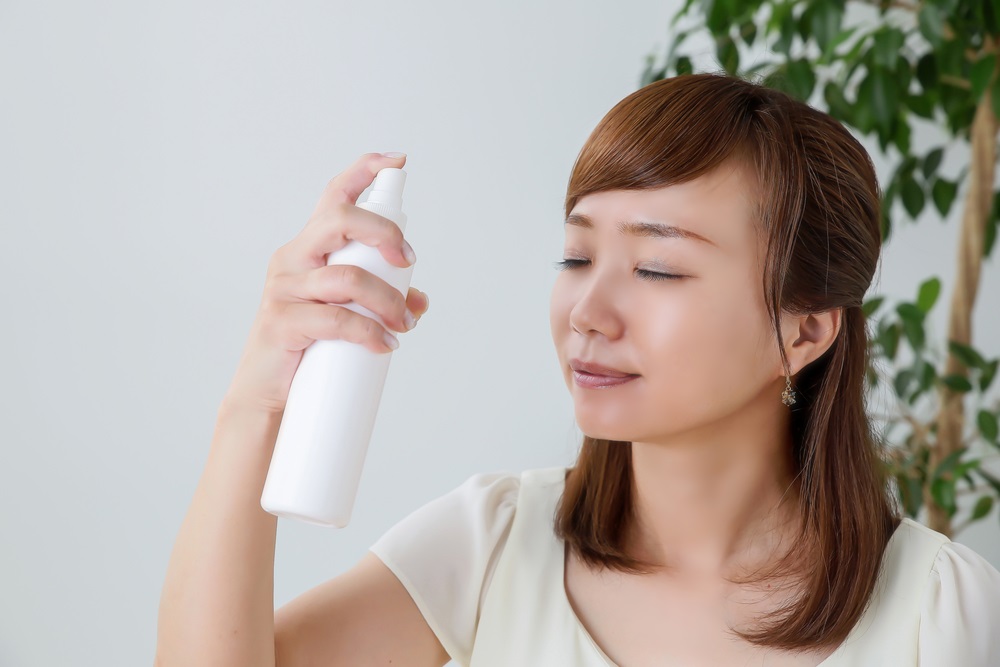Ginger or its scientific nameZingiber officinale Roscoeis a plant that is often used as a seasoning in cooking.The plant is believed to have originated in China and later spread its use to India, Southeast Asia, West Africa, and the Caribbean.
According to Webmd, Ginger is commonly used for many types of nausea and vomiting. It’s also used for menstrual cramps, osteoarthritis, diabetes, migraine headaches, and other conditions, but there is no good scientific evidence to support many of these uses.
Researchers believe the chemicals work primarily in the stomach and intestines, but they may also work in the brain and nervous system to control nausea.
Uses & Effectiveness
Possibly Effective for
- Nausea and vomiting caused by drugs used to treat HIV/AIDS (antiretroviral-induced nausea and vomiting).Research suggests that taking ginger daily, 30 minutes before each dose of antiretroviral treatment for 14 days, reduces the risk of nausea and vomiting in patients receiving HIV treatment.
- Menstrual cramps (dysmenorrhea).Research shows that taking ginger powder 500-2000 mg during the first 3-4 days of a menstrual cycle modestly decreases pain in women and teens with painful menstrual periods. Ginger was given for approximately 3 days starting at the beginning of the menstrual period or at the beginning of pain. Some research shows that taking ginger seems to work about as well as some pain medications, like ibuprofen, mefenamic acid, or Novafen.
- Osteoarthritis.Most research shows that taking ginger by mouth can slightly reduce pain in some people with osteoarthritis. There is some evidence that taking ginger by mouth works as well as certain drugs such as ibuprofen and diclofenac for pain in hip and knee osteoarthritis. But conflicting results exist. Some early research also shows that ginger gel applied to the knee or ginger oil massaged into the knee can also relieve osteoarthritis pain.
- Morning sickness.Taking ginger by mouth seems to reduce nausea and vomiting in some pregnant women. But it might work slower or not as well as some drugs used for nausea. Also, taking any herb or medication during pregnancy is a big decision. Before taking ginger, be sure to discuss the possible risks with your healthcare provider.
Possibly Ineffective for
- Muscle soreness caused by exercise.Research shows that taking ginger does not reduce muscle pain during exercise. Also, taking ginger doesn’t seem to help treat or prevent muscle pain after exercise.
- Motion sickness.Most research suggests that taking ginger up to 4 hours before travel does not prevent motion sickness. Some people report feeling better, but actual measurements taken during studies suggest otherwise. But in one study, ginger appears to be more effective than the drug dimenhydrinate at reducing stomach upset associated with motion sickness.
Insufficient Evidence for
- A sudden and serious lung condition (acute respiratory distress syndrome or ARDS).Research suggests that administering 120 mg of ginger extract daily for up to 21 days increases the number of days without ventilator support, the amount of nutrients consumed, and reduces the time spent in intensive care units in people with sudden respiratory system a failure. However, ginger extract does not seem to affect death rates in people with this condition.
- Nausea and vomiting caused by cancer drug treatment.Taking ginger along with anti-nausea medicine doesn’t seem to prevent delayed nausea and vomiting in people treated with cancer drugs. This type of nausea and vomiting occurs a day or more after cancer therapy. Most research also shows that taking ginger along with anti-nausea medicine doesn’t prevent sudden nausea and vomiting due to cancer drugs. But some research shows it helps with sudden vomiting when used at doses of less than 1 gram over at least 3 days. It’s possible that ginger helps only at lower doses or when nausea or vomiting is caused by only some cancer drugs. It’s also possible that ginger helps reduce nausea caused by cancer drugs only when used with anti-nausea medicines that don’t work very well on their own.
- A lung disease that makes it harder to breathe (chronic obstructive pulmonary disease or COPD).Research shows that taking two capsules of a specific combination product (AKL1, AKL International Ltd) containing ginger twice daily for 8 weeks does not improve respiratory symptoms in people with COPD.
- Diabetes.Taking ginger seems to lower blood sugar in some people with diabetes. Doses of at least 3 grams of ginger per day seem to be needed. Lower doses might not help. And ginger might need to be taken for at least 3 months before benefits are seen.
- Indigestion (dyspepsia).Research suggests that taking a single dose of 1.2 grams of ginger root powder one hour before eating speeds up how quickly food empties out of the some in people with dyspepsia.
- Hangover.Early research suggests that taking a combination of ginger, pith of Citrus tangerine, and brown sugar before drinking decreases symptoms of alcohol hangovers, including nausea, vomiting, and diarrhea.
- High levels of cholesterol or other fats (lipids) in the blood (hyperlipidemia).Research suggests that taking 1 gram of ginger three times daily for 45 days lowers triglyceride and cholesterol levels in people with high cholesterol.
- High blood pressure.Drinking black tea with ginger might lower blood pressure by a small amount in people with diabetes and high blood pressure.
- Insect bite.Early research shows that applying Trikatu to the skin, which contains ginger, long pepper, and black pepper extracts, does not reduce mosquito bite size.
- A long-term disorder of the large intestines that causes stomach pain (irritable bowel syndrome or IBS).Taking ginger alone doesn’t seem to improve IBS symptoms. But taking ginger along with other herbal ingredients might help. Whether the benefit of these combination agents is due to ginger or the other ingredients is unclear.
- Joint pain.Research shows that taking capsules of a specific combination product (Instaflex Joint Support, Direct Digital, Charlotte, NC) containing ginger for 8 weeks reduces joint pain by 37%. But this product does not seem to reduce joint stiffness or improve joint function.
- Abnormally heavy bleeding during menstrual periods (menorrhagia).Taking ginger might reduce menstrual bleeding in some young women with heavy menstrual bleeding.
- Migraine.Some reports suggest that taking ginger or a combination of ginger and feverfew might reduce the length and intensity of migraine pain. But it is not clear if the effects are from ginger, feverfew or the combination. Taking ginger alone doesn’t seem to prevent migraine pain.
- Obesity.Taking ginger alone doesn’t seem to help obese people lose significant amounts of weight. Taking a ginger with other herbs does not result in consistent improvements in weight loss.
- Childbirth.Early evidence suggests that bathing in water containing ginger oil does not shorten the length of labor.
- Recovery after surgery.Inhaling and applying lavender and ginger oils to the skin before surgery does not seem to reduce distress in children after surgery. Taking ginger by mouth might help reduce pain and improve wound healing in children who’ve had their tonsils removed.
- Nausea and vomiting after surgery.The research for using ginger to prevent nausea and vomiting after surgery is unclear. Some clinical research shows that taking ginger by mouth one hour before surgery reduces nausea and vomiting during the first 24 hours after surgery. But not all research agrees. Taking ginger by mouth doesn’t seem to have added benefit when used with prescription medications for nausea and vomiting. Keep in mind that most patients are not supposed to eat or drink anything before surgery, so talk to your doctor first if you are interested in taking ginger before surgery. Ginger aromatherapy has also been studied. Placing ginger oil on patients’ wrists or on a gauze pad before surgery seems to prevent nausea in some patients.
- Rheumatoid arthritis (RA).Early research shows that ginger might be helpful for decreasing joint pain and swelling in people with RA.
- Trouble swallowing.Evidence suggests that spraying a product containing ginger and clematix root in the mouth improves severe problems swallowing in stroke victims. However, it is not beneficial in people with less severe problems swallowing. Also, taking a single ginger tablet doesn’t help people with trouble swallowing due to aging.
- Liver damage caused by chemicals.Some drugs used to treat tuberculosis can cause liver damage. Taking ginger along with these drugs might help prevent liver damage in some people.
- A type of inflammatory bowel disease (ulcerative colitis).Early research shows that ginger might be helpful for improving overall disease activity in people with ulcerative colitis. But it doesn’t seem to improve quality of life, stool frequency, stomach cramps, or gas (flatulence).
- Dizziness (vertigo).Taking ginger might reduce nausea in people with vertigo. But it doesn’t seem to improve vision problems in people with vertigo.
- Anorexia.
- An infection of the intestines that causes diarrhea (cholera).
- Baldness.
- Bleeding.
- Colds.
- Flu.
- Loss of appetite.
- Toothaches.
- Other conditions.
Sources: Webmd









Leave a Comment